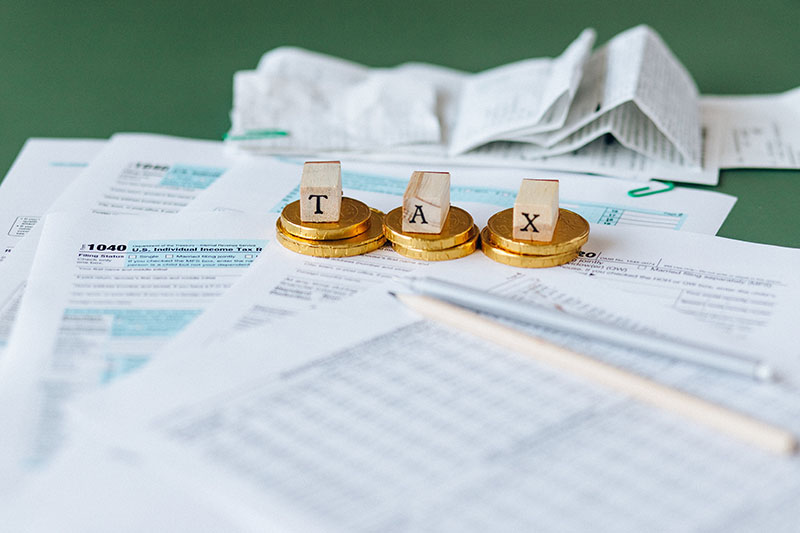
NC Tax Audit Survival Guide: Know Your Rights
Published on April 09, 2024
We admit it. We put “survival” in the title to scare you just a little bit. Enough to make you read this next line.
You shouldn’t be afraid of a tax audit on your business. Especially not if you have an NC tax advisor working regularly with you.
An audit is merely an examination–a sampling to ensure companies obey tax laws. Your public tax accountant can guarantee your tax return’s accuracy, help you compile necessary documentation, and represent your best interests during an audit.
What an Audit Isn’t
A tax audit isn’t a death sentence. Nor is it a sign you did anything wrong. It doesn’t mean you’ll pay more. In fact, you could come away with a refund.
It also doesn’t brand you with the scarlet letter “A.” Your audit will be confidential. Truth be told, you have little to worry about in the hands of a qualified tax accountant.
Let’s look more closely at your rights (and some responsibilities) during a tax audit.
Taxpayer Rights
You, the taxpaying businessperson, have a right to fair, prompt, professional, and courteous service. The Department of Revenue’s (DOR’s) goal is to apply our state’s tax laws equally and fairly. It protects your rights and ensures you pay only your fair share.
Representation
You can request a representative during any conference or examination procedure. Your attorney, accountant, or any designated person with a written power of attorney may represent you. North Carolina’s DOR has a power of attorney form (Gen-58) on its website for your convenience.
Additionally, you can push the pause button on an audit. You may suspend an audit procedure to allow consultation time with your authorized representative.
Privacy Protection
You have the right to your privacy during an audit. Auditors will examine sensitive information like your tax history and returns, current financial standing, and reviews or assessments.
Discussions and correspondences may occur via mail, phone, or in person. Trust that your discussions and financial information are strictly confidential at all times. DOR employees who violate a taxpayer’s trust can face fines, criminal prosecution, and dismissal.
Tax Return Examination
The DOR’s routine examinations ensure taxpayers comply with tax statutes. When auditing yours, you’ll provide information to verify what’s on your return.
Your tax accountant can help you with this step. Rest assured, you are entitled to a fair assessment and explanations for any changes the DOR asks you to make.
Penalties and Interest
The DOR assesses penalties for late return filings and tax payments, fraud, negligence, or bad checks/EFT payments. You may request a waiver of penalties per the DOR Penalty Waiver Policy.
But beware. Interest on the amount owed still accrues on unpaid amounts from the beginning of its due date until the payment date. Certain bankruptcy cases have exceptions.
Should you need to waive penalties, pay the tax you owe and interest due first. Then, request the waiver for penalty fees to avoid paying extra interest. Choose form NC-5500 to request a penalty waiver.
Refund
You may receive a refund for overpaid taxes. Request a refund on the DOR website by filing an amended return or a “claim” for a refund.
Only “claims” filed within a certain time frame are eligible for refunds. In North Carolina, the statute of limitations for a refund is the later of either three years past the due date of the tax return or two years after the tax payment.
The DOR has six months to respond to your “claim.” They must do one of the following four things within that allotted time:
- Pay you the refund
- Adjust your refund amount
- Deny your refund
- Request more information
The DOR’s inaction within six months is an assumed denial. If you disagree with their decision denying you the refund, you or your representative may file a request (NC-242) for them to review the decision.
Timeliness is key. You must file your request within 45 days of the date they mailed the decision letter or the date you received it. Filings beyond the 45-day limit result in a denial.
You may file a petition for a contested tax case with the Office of Administrative Hearings (OAH) if you disagree with the DOR that your “claim” is past the statute of limitations. However, you must wait and do so after they issue you a Notice of Final Determination (NOFD) stating taxes, penalties, and interest owed.
The NOFD will contain your payment options if you haven’t already paid and haven’t contested the final determination. It will also provide appeal procedures to challenge the final determination.
Rights (and Responsibilities) Summary
As a taxpayer, you have the right to protection of privacy, fair examination of tax returns, representation, and the ability to request waived penalties. Find a trusted attorney or accountant to help you meet your tax obligations and serve as your go-to for representation.
Your responsibilities include meeting registration, reporting, filing, and payment obligations, keeping books and records up-to-date and acceptable, and providing books and documents upon request. Again, a trusted accountant can help you more easily satisfy these obligations.






